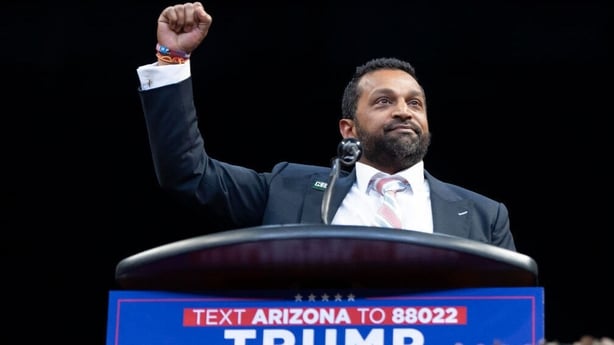The Republican-controlled US Senate has confirmed Kash Patel, a staunch loyalist of President Donald Trump, to be director of the FBI, the country's top law enforcement agency.
Mr Patel, 44, whose nomination sparked fierce but ultimately futile opposition from Democrats, was approved by a 51-49 vote.
The vote was split along party lines with the exception of two Republican senators, Susan Collins of Maine and Lisa Murkowski of Alaska, who voted not to confirm Patel to head the 38,000-strong FBI.
Mr Patel drew fire from Democrats for his promotion of conspiracy theories, his defence of pro-Trump rioters who attacked the Capitol on 6 January 2021 and his vow to root out members of a supposed "deep state" plotting to oppose the Republican president.
The Senate has approved all of Mr Trump's cabinet picks so far, underscoring his iron grip on the Republican Party.
Among them is Tulsi Gabbard, confirmed as the nation's spy chief despite past support for adversarial nations including Russia and Syria, and vaccine skeptic Robert F. Kennedy Jr to be health secretary.
Patel's agenda
Mr Patel has vowed that politics will play no role in his leadership of the FBI, but his closeness to Mr Trump has prompted concerns from Democrats and many legal experts.
The top Democrat on the US Senate Judiciary Committee, Dick Durbin, last week accused Mr Patel of orchestrating the removal of FBI officials from the outside, citing information from whistleblowers.
Mr Patel has said he will increase the FBI's role in countering illegal immigration and violent crime, top Trump priorities, by "letting good cops be cops."
He has said he will scale back investigative work at the FBI’s Washington headquarters where many counterintelligence, national security and public corruption probes are housed.

Mr Patel has been among the biggest boosters of claims that a "deep state" within the government has pursued Mr Trump in an attempt to sink his political prospects.
"The erosion of trust is evident," Mr Patel wrote in a Wall Street Journal essay last month, referring to the FBI.
Mr Patel’s nomination is itself evidence of Mr Trump’s attempts to exert greater control over federal law enforcement.
The FBI director, who serves a ten-year term, is not typically a role that turns over with the change to a new presidential administration.
Mr Trump nominated Mr Patel after winning the November election, effectively forcing former Director Christopher Wray, who Mr Trump had appointed to the role in 2017, to resign.
Mr Trump fired Wray's predecessor, James Comey.
Mr Patel has drawn strong condemnation from Democrats who accused him during his confirmation hearing of embracing conspiracy theories and fixating on political grievances.
Republicans broadly supported Mr Patel, calling him a reformer who has challenged institutions that have misused their authority.

